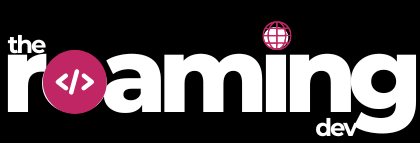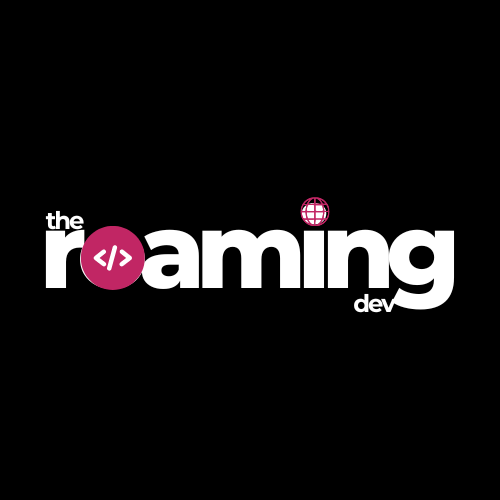I. Introduction
As we begin the year 2024, more and more software engineers are looking for remote roles but often do not know where to start. There are numerous remote working platforms that companies use to hire software engineers across the world and it may be difficult to settle on one.
Recently, news has been plagued with big tech companies laying off thousands of staff members in Q3 & Q4 of 2022 which also means there are more software engineers looking for their next jobs. Many of these will openly admit they would prefer a remote role as compared to hybrid roles and those that need them to go to the office 5 days a week.
Additionally, more software engineers are looking to delve into the digital nomad lifestyle and that could well start with taking up a job on a remote work platform. You can read my step-by-step guide on How to Become a Digital Nomad as a Software Engineer.
In this post, I will cover 5 of the best remote work platforms that software engineers can sign up for and begin their search for well-paying remote engineering jobs.
II. 5 Best Remote Working Platforms for Software Engineers
1. FlexJobs
FlexJobs is one of the top-ranked platforms for anyone looking for remote work including software engineers. It is very popular among digital nomads and freelance workers, priding itself on being the #1 platform to find remote jobs with no ads, scams, or junk. They also offer flexible and hybrid job opportunities.
A. How FlexJobs Works?
First, you need to have a paid subscription to FlexJobs to view employers, view open roles, or apply for any remote role. They have a weekly ($9.95), monthly ($24.95), 3 months ($39.95) and yearly ($59.95) subscriptions.
Employers on the platform decide how they want you to apply for jobs through FlexJobs. They could either allow you to apply through FlexJobs or require you to apply directly from the careers page on their websites.
Some companies may request that you e-mail your resume and cover letter instead of applying through FlexJobs or their own system. You will find their email address on the job posting.
B. Pros
- 23,768 jobs from 5781 companies across the world
- All job postings are hand-screened for professionalism.
- Comes with additional perks and discounts for Audible,Dell, WeWork and TurboTax
C. Cons
- Requires a paid membership starting from $9.95 a week and $24.95 a month
D. Companies using FlexJobs
- Apple
- Dell
- Wells Fargo
- Pearson
- CVS Health
Related Article: 5 Best Remote Software Engineer Jobs in 2024
2. Turing
Turing describes itself as a platform to hire the most deeply vetted developers and teams, matched by AI. They use a deep vetting platform powered by AI that is able to effectively help companies hire remote software developers, tech leads, and other tech-related roles for their teams.
A. How Turing Works?
Interested software developers will be required to sign up to Turing and complete your profile including KYC data, programming languages preferred, and salary expectations.
After that, you will be required to take 3 assessment tests. These are a seniority assessment, tech stack test, and live coding challenge. If you successfully ace the 3 tests then you can start applying to the thousands of remote jobs available on their platform.
B. Pros
- Free to use
- Over 100 different software engineering roles in React, Node, Python, Angular, Swift, React Native, Android, Java, Rails, Golang, PHP and Vue
- Offers full-time and part-time roles for software developers
- Career and upskilling workshops
C. Cons
- Offers roles in American companies only
- B1 level of English is required
- Developers need to have at least 3 years professional experience
D. Companies using Turing
- Top US companies
3. AngelList (Now called WellFound)
AngelList Talent, now WellFound is a platform dedicated to people interested in working for startups all over the world.
A. How AngelList Works?
After signing up for AngelList, developers are required to complete their profile before applying for any job. Their profile could include preferences that help narrow the job search including salary expectations and cultural preferences.
B. Pros
- Over 130,000 jobs in tech companies
- Cover letters are not needed. Just complete your profile
- Job offers include salary details & equity options
- Connect directly with startup founders not hiring managers
C. Cons
- Most jobs are in tech startups
D. Companies using AngelList
- Plaid
- Nerdwallet
- Airtable
- DoorDash
- Roblox
- Honey
- Peleton
4. Toptal
Toptal describes itself as the platform where companies can hire the Top 3% of Freelance Talent. It is a marketplace for the top software developers, designers, and freelance engineers in numerous fields including tech.
A. How Toptal Works?
Becoming a Toptal developer can be quite tough as you will be required to go through a series of tests and interviews. These include:
- Communication skill verification. A 10-minute introductory session to answer some general questions.
- 90-mins coding test. A Codility test to be taken within 3 days.
- Live coding. If you pass the Codility test, you will receive an email to schedule a 60-minute interview with several coding problems to solve.
- Final interview. Involves a meeting of 120 minutes. However, you may not find an open slot immediately and might have to wait a few weeks.
B. Pros
- Free to use
- Has developers from 100+ countries
- Includes startups and big tech companies
C. Cons
- Requires a minimum of 3 years experience
- Lengthy & Rigorous screening process. Only 3% of applications are accepted each month
D. Companies using Toptal
- Cleveland Cavaliers
- Udemy
- Shopify
- Bridgestone
- Imperial College London
- Calm
- Duolingo
5. Arc
Arc describes itself as a “radically different remote job search where companies apply to you“. This platform is dedicated to software developer roles only which can be very useful. They target senior software engineers looking for permanent remote roles in high-growth tech companies and startups.
They also have a dedicated page for internships and entry-level remote software developer roles. Anyone in the software engineering field knows how hard it can be to get started and get your first job especially remotely.
A. How Arc Works?
On signing up, software developers will be required to complete the vetting process. It includes recording video answers to questions or a virtual call with a hiring manager to understand your English level. This is followed by a skills assessment in the form of a coding challenge or a technical interview.
If you successfully complete the assessment, your profile gets featured to companies for 2 weeks after which you will receive interview requests in your inbox before proceeding to get hired.
B. Pros
- Free to use and dedicated to remote jobs for software developers
- If you pass the screening, companies “apply” to you directly
- Includes entry-level and internship jobs
- Has a salary explorer tool that can help you determine your rate compared to developers globally.
- Inbuilt resume builder
C. Cons
- If you fail the assessments, you cannot reapply for 6 months
D. Companies using Arc
- Automattic
- Spotify
- Hims
- HubSpot
III. Bonus Remote Working Platforms for Software Engineers
IV. Conclusion
With the increasing popularity of remote work and digital nomad lifestyles, software engineers continue to look for remote working platforms with flexible and well-paying jobs. I hope this article has pointed you in the right direction.
Also read :
Best of luck to you, my fellow software engineer as you hop onto one or more of these platforms in search of your next adventure.



![5 Best Remote Working Platforms for Software Engineers in 2024 [Pros & Cons Reviewed] video-call-while-coding-on-laptop](https://roamingdev.co/wp-content/uploads/2023/01/pexels-thisisengineering-3861964-768x1151.jpg 768w, https://roamingdev.co/wp-content/uploads/2023/01/pexels-thisisengineering-3861964-683x1024.jpg 683w, https://roamingdev.co/wp-content/uploads/2023/01/pexels-thisisengineering-3861964-1025x1536.jpg 1025w, https://roamingdev.co/wp-content/uploads/2023/01/pexels-thisisengineering-3861964-450x675.jpg 450w, https://roamingdev.co/wp-content/uploads/2023/01/pexels-thisisengineering-3861964-1200x1799.jpg 1200w, https://roamingdev.co/wp-content/uploads/2023/01/pexels-thisisengineering-3861964.jpg 1280w)